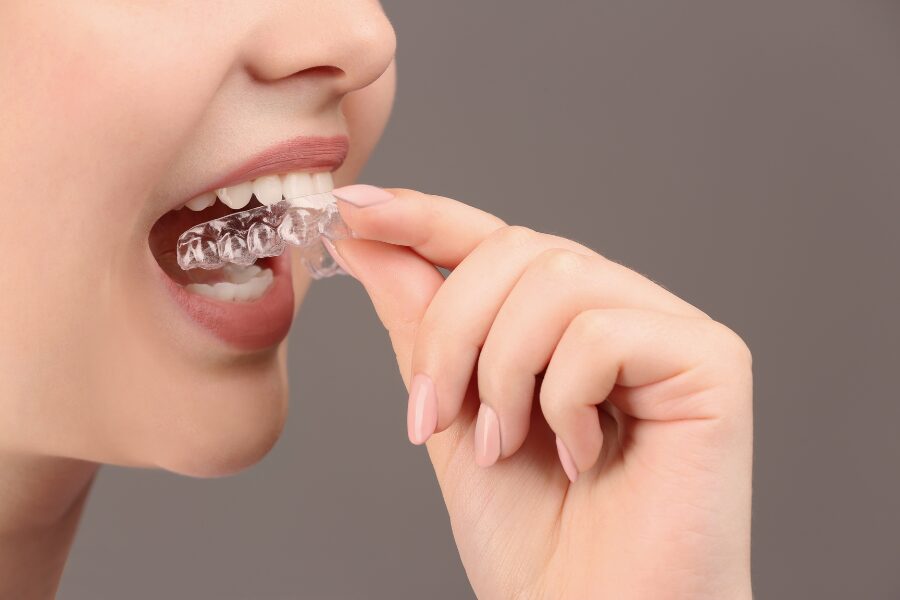Beyond Bruxism: Multifaceted Benefits of Occlusal Mouth Guards
When we talk about the guardians of our nightly peace, occlusal mouth guards don’t typically spring to mind. Yet, for anyone who’s ever dealt with the discomfort of waking up to a sore jaw or the sound of teeth grinding, these protective devices are nothing short of heroic. Far beyond their role in combating bruxism, occlusal guards harbor a suite of benefits poised to revolutionize dental practices and patient care alike.

Unveiling the Shield: The Remarkable Advantages of Occlusal Guards in Modern Dentistry
In this deep dive, we’ll explore the multifaceted advantages of integrating occlusal mouth guards into your dental practice. From safeguarding smiles to unveiling unexpected wellness perks, prepare to be surprised by what these dental defenders can do.
Beyond Bruxism: The Wide-Ranging Role of Occlusal Guards
Bruxism, the clinical term for teeth grinding and jaw clenching, is a prevalent concern. While occlusal guards are well-known for their role in bruxism management, their benefits extend far into broader dental health and wellness spheres.
The Unseen Protector
- Preventing Tooth Damage: Chronic teeth grinding can lead to wear, fractures, and even loss. Occlusal guards act as a protective layer, absorbing and dispersing the forces.
- Mitigating TMJ Stress: By realigning the bite, these guards can reduce stress on the temporomandibular joints, offering relief from TMJ-related discomfort.
Enhancing Treatment Outcomes
- Complementing Orthodontic Care: For patients undergoing orthodontic treatments, occlusal guards can help maintain alignment and prevent teeth from shifting back.
- Boosting Prosthodontic Longevity: Crowns, bridges, and implants represent significant investments. Occlusal guards protect these from the added stresses of night-time grinding, potentially extending their lifespan.
A Holistic Approach to Dental Wellness
Occlusal guards serve not just the mouth but contribute to overall health. This holistic influence can be a key selling point for practitioners looking to enhance patient wellness comprehensively.
The Sleep Connection
- Improving Sleep Quality: By preventing teeth grinding while asleep, occlusal guards can lead to a more peaceful and restorative night’s sleep, indirectly supporting mental and physical health.
- Snoring and Sleep Apnea: Some designs of occlusal guards can also help to keep the airway open, providing a non-invasive solution for snoring and sleep apnea sufferers.
Stress Reduction
In today’s high-pressure society, stress manifests physically in ways many don’t anticipate. Occlusal guards offer a physical barrier against stress-related dental damage, highlighting the importance of dental practitioners in managing stress’s physical side effects.
Implementing Occlusal Guard Therapy in Your Practice
Adopting occlusal guard therapy presents an opportunity for dental practices to expand their services, enhancing patient satisfaction and care outcomes.
Educating Your Team and Patients
Awareness is the first step. Educate your team on the benefits and correct usage of occlusal guards so they can confidently pass this knowledge on to patients.
Personalization is Key
Offering customized occlusal guards can significantly improve comfort and compliance, making it a win-win for both practice and patient. This personalization fosters a stronger practitioner-patient relationship, showcasing your commitment to tailored care.
Occlusal mouth guards represent a shining beacon in the quest for comprehensive dental and general health care. As we’ve seen, their benefits extend far beyond the realms of bruxism relief, touching on aspects of orthodontic support, prosthodontic protection, sleep improvement, and even stress management.
Incorporating occlusal guard therapy into your practice isn’t just about offering another service. It’s about embracing a holistic approach to care, one that acknowledges the intricate link between dental health and overall wellbeing. So, consider making occlusal guards a cornerstone of your practice and watch as your patients’ smiles—and lives—transform for the better.



Leave a Reply
Want to join the discussion?Feel free to contribute!